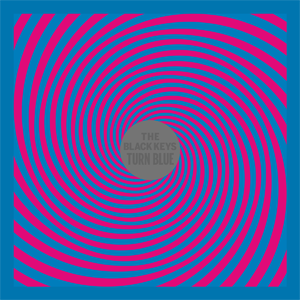Some of the great albums in music history have been borne out of divorce. From Bruce Springsteen’s Tunnel of Love to Willie Nelson’s Red Headed Stranger to Bob Dylan’s Blood on the Tracks, it seems the devastation of the end of a marriage brings out the best in songwriters. The latest confirmation of this sad psycho-aesthetic fact is the Black Keys’ most recent effort, Turn Blue. Release of the album was apparently delayed by singer-guitarist Dan Auerbach’s divorce proceedings, which were particularly dark and full of disturbing allegations.
 The songs on Turn Blue reflect what must have been some rough years for Auerbach, beginning with the haunting and patient opener “Weight of Love,” featuring some extended, anguished guitar solos that reinforce Auerbach’s grim declarations: “Used to think, darlin’, you never did nothing. But you were always up to something. Always had a run in, yeah. I got to think those days are coming to get ya. Now no body want to protect ya. They only want to forget ya.”
The songs on Turn Blue reflect what must have been some rough years for Auerbach, beginning with the haunting and patient opener “Weight of Love,” featuring some extended, anguished guitar solos that reinforce Auerbach’s grim declarations: “Used to think, darlin’, you never did nothing. But you were always up to something. Always had a run in, yeah. I got to think those days are coming to get ya. Now no body want to protect ya. They only want to forget ya.”A few songs later, Auerbach’s grudge has turned to dismissive contempt: “You wanted to love but you didn’t know how. That’s okay, it’s up to you now. Its got so bad to where I wouldn’t allow, but no more. It’s up to you now. (I’ll) let you go, so you can grow old.” (“It’s up to You Now”). Elsewhere, things get even more gloomy when he declares that even death would be preferable to his current situation: “Bullet in the brain I prefer than to remain the same” (“Bullet in the Brain”). And in the title track, there are more ominous lines: “I really don’t think you know there could be hell below, below.”
Vengeance, contempt, condemnation, suicidal thoughts. Yep, that’s the psychological landscape of the death of a marriage, as anyone who has been through divorce will testify.
But what is interesting about this record is that it isn’t a dark or brooding album from a musical standpoint. Much like their 2010 album Brothers, there is an early 70s era Motown vibe to many of the songs (especially “In Time,” “Waiting on Words” and “10 Lovers”). Also, several tracks are upbeat, and the album is full of melodic hooks. These are hardly qualities of a depressing album. This probably explains why most reviewers of the album haven’t properly attended to the heaviness of the lyrics.
Auerbach and drummer Patrick Carney set out to make an album unlike their previous release, El Camino, which was loaded with radio-ready track. This one, they resolved, would be devoid of pop songs. In spite of themselves, the album does contain some catchy pop-rock tunes, including “Fever,” with its addictive keyboard line, as well as the insta-classic closer “Gotta Get Away.” Even more so than the rest of the album the music of “Gotta Get Away” defies its lyrics. The chord progression and triumphant guitar solo feel like liberation and triumph. But what Auerbach tells us is that he’s just glad to have escaped, even if there is no hope of finding love again: “I went from San Berdoo to Kalamazoo just to get away from you. I searched far and wide, hoping I was wrong, but maybe all the good women are gone.
And so the album ends, perhaps appropriately, on a pessimistic note. Maybe Auerbach will find love again, as his newly remarried bandmate Patrick Carney apparently has. Fortunately, all the good women are not gone. So although he’s turned blue for now, he doesn’t need to stay that way.

shannon
Thanks for pointing out the disconnect between the heavy lyrics and catchy tunes. I’ve bee enjoying them on xm but hadn’t fully caught the heaviness of the lyrics….just bits here and there. I am going to listen much closer now.
Jim Spiegel
Yeah, it took a while for it to click with me, too.
Andrew
Thanks for this, Jim.
I’ll confess to initially being underwhelmed by “Turn Blue,” but it’s growing on me. Your review further helps its case.
Lance Hill
Nice review! I was not aware that they set out to make an album “devoid of pop songs.” I think because of that, just like Andrew, I also felt underwhelmed initially. Maybe I need to give it another chance.
Also, I’ve heard several interviews from the band about this album, but somehow your review put the story behind the album (Auerbach’s divorce) a little more into perspective. An album born out of a divorce would make sense if it’s not as likeable as previous records.